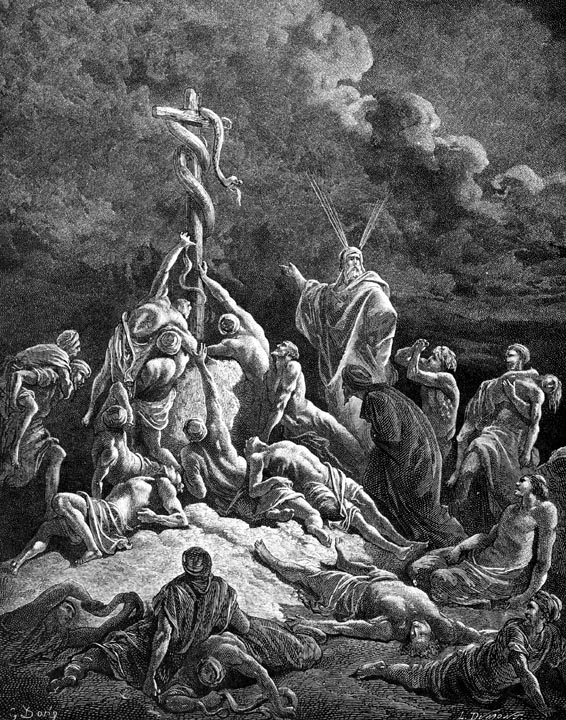Sep 14., 2019 / Homilies, Soul Food, Updates and Activities
Gazing on the Cross
Homily of Fr. Peter Pojol, S.J. at Cenacle Retreat House on September 14th, 2019 (Saturday)
I think it may be safe to say that everyone has had an experience of recoiling at something horrible, of being so distressed by something that it makes us turn away in order to, momentarily at least, block out whatever evil confronts us. It could be the replay of that crucial helmet-and-glove catch by David Tyree, if you’re a New England Patriots fan. It could be a scene of extreme violence, or of a loved one suffering in sickness. It could be a reminder of anything depressing, or anything frightening, anything that threatens life, anything that seems to assert the victory of death, of the anti-life. Have you ever, in such an instance, fought against your instinct to turn away and to forget, and instead steeled your resolve to face that evil squarely and not let it determine your choices or your life, not let it have the last word? If you have, you may have experienced the power of paradoxically drawing life from death, of gaining strength from fear.
The story of Moses and the Israelites in our first reading from the book of Numbers illustrates how God saved them from their deaths precisely by having them confront the cause of their death. I must admit that it is a mysterious account written with many of the mythical elements of story-telling and faith proclaiming that was standard practice at that time.
But what we can glean from the story is that the Israelites were dying in the desert, whether literally or figuratively from snake bites, and recognizing their fault for turning against God in their distress, they sought the forgiveness and help of God. What is interesting in this account is the way God saved them.
Rather than introducing something different to counter the serpents, God instructed Moses to make an image of the serpent, and to tell the people to look at this image, a stark reminder of their ills. Rather than giving them something to take their attention away from the source of their death and destruction, God as it were made them stare death in the eye and in this way enabled them to defeat death and to have life.
There is something to be said about gazing on evil that threatens to envelope and overwhelm us. The wisdom of staring death in the eye is not simply to desensitize us or to make us numb, which is what seems to drive some trends in popular media and culture. For even when we have become desensitized and numb, we can still die, just as we can die running away from death. Rather, the wisdom of gazing right at death is to see what we had not seen before: that is, the power of God that surpasses death and evil—not just death and evil in the abstract, but this death and this evil that taunts me; and not just the power of God in general, but the unrelenting power of this God who loves me persistently no matter how many times I have foresaken him.
We may have become desensitized to the paradox of bannering the very cause of death as the promise of deliverance, from the sheer repeated exposure to the image. In fact, one of the universal symbols of medicine derives, I think, from the Old Testament story we just heard: the image of a serpent on a pole, especially as it is being carried by the figure of the greek god Mercury symbolizing the speedy delivery of cure. The other ubiquitous paradoxical symbol of cure and life, whose power to jolt us into recognizing the profound truth of “life through death” is easy to lose, is the cross of Jesus Christ, the exaltation of which we celebrate today. It is easy to forget the impact of raising high the symbol of the standard instrument of torture and death that was the very same one used to kill the one we proclaim as Messiah and Savior. If Jesus had been executed by an electric chair, we would be adorning all our Churches and altars with it.
By exalting the cross, whether by the crucifixes we place prominently in our homes and places of worship, or by the habit of the sign of the cross with which we call upon God to bless us in prayer, we not only remind ourselves of our death and of the death of the one who came to save us, but more importantly, we recommit ourselves to the truth that Jesus exemplified and willingly gave up his life to tell: that God is love and love is the final word, not death, not failure, not evil. By exalting the cross we humbly beg the Lord to help us make our own the saving mystery that plays out from death to life. By living by the sign of the cross, we hope to embrace whatever makes us cringe and cower in fear and in so doing to find God embracing us and leading us from darkness into light. As the evangelist John set down in those immortal words we heard in our gospel today: “For God so loved the world that he gave his only Son, so that everyone who believes in him might not perish but might have eternal life.”










